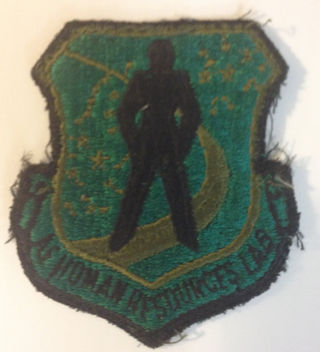Memory
Military Psychology Then and Now
Reflections on 36 Years as a Military Psychologist
Posted July 31, 2016
This month marks the 36th anniversary of my first job as a military psychologist. A newly minted Air Force second lieutenant, I reported for duty to the Air Force Human Resources Laboratory at Brooks Air Force Base in San Antonio, Texas. The Air Force had classified me as a “behavioral sciences officer,” and my job at the laboratory was to conduct research on aspects of human behavior that impacted Air Force mission capability. My doctoral studies in experimental psychology had focused on animal learning and memory, which hardly qualified me for this particular job, but my extensive education in research methodology and statistics provided a strong basis for refocusing on the research questions in which the laboratory was engaged at the time. In any case, what has turned into a long career as a military psychologist was launched.

Current students of psychology may find it interesting to learn what research topics were of interest to the Air Force in the early 1980s. My first research projects for the Air Force included how to expand military jobs to women; how to measure small group productivity; developing and validating an interest inventory to better classify new recruits; and understanding the factors that affected the performance of military personnel assigned the important task of guarding nuclear weapons. The most pressing problems the military faced had, at their roots, issues that psychologists and scientists in related disciplines could address. Other military psychologists at the time engaged in research on a wide variety of questions.
Over the last three and a half decades, psychologists have been instrumental in efforts to improve the military and to enhance its effectiveness. In 1980, women were still barred from all direct combat jobs in the military, and were represented in only small numbers in non-combat jobs. The first class of women graduated from the national service academies. Flash forward 36 years. Women have served valiantly and in combat in Iraq and Afghanistan. Over 20 percent of cadets at West Point, the Naval Academy, and the Air Force Academy are now women, and these numbers are likely to increase in the years to come. Both the Commandant and Dean at West Point are women. Many others have risen to general officer/flag rank. And all along the way, psychologists have facilitated these advances by conducting research that dispelled gender-biased views of military competence, and as being vocal advocates for the rights of women to serve their nation in the same capacities, and with the same responsibilities, as men. This recently lead to the elimination of the combat exclusion rule and the opening of all military jobs to women including eligibility for elite military training, like the Army’s Ranger school.
Psychologists also played a critical role in the repeal of the so-called “Don’t ask, don’t tell” policy that barred homosexuals from serving openly in the military. Members of the American Psychological Association’s Society for Military Psychology (APA Division 19) partnered with members of the Society for Psychological Study of Lesbian, Gay, Bisexual, and Transgender Issues (APA Division 44) to help craft APA’s advocacy for the repeal of DADT. Decades of psychological research armed policy makers with the knowledge needed to counter arguments that opening the military to non-heterosexuals would degrade readiness through eroding morale and cohesion. Psychologists are, to a very large extent, the “honest brokers” in the larger social and political movements aimed at ensuring that all Americans have the right to serve in the military.
Selection and classification was important in 1980 and remain so now, but research has switched from an almost exclusive focus on aptitude (e.g., the Armed Forces Vocational Aptitude Battery, or ASVAB) to other traits and characteristics that go beyond intelligence, aptitude, and talent. The Army Research Institute, for instance, has recently developed and test-fielded a valid and reliable inventory called the Tailored Adaptive Personality Assessment System (TAPAS). The TAPAS measures a variety of “non-cognitive” attributes and in doing so improves the ability to select and match military candidates to specific jobs. MacArthur Award recipient Angela Duckworth, a University of Pennsylvania psychology professor, showed that “grit” (the passionate pursuit of long-term goals) predicted success among new cadets at West Point. Dr. Richard Lerner and his associates at Tufts University are partnering with West Point to conduct a 5-year longitudinal study of character and its assessment among cadets. The data generated from this effort may inform other new approaches to selecting, assigning, and developing military personnel.
Well noted demographic changes in the United States coupled with the nature of contemporary warfare reinforce the importance of building and maintaining a military force that is representative of the population. With a few notable exceptions, the military of World War II was white, rural, and lower to middle class. As I note in Head Strong (Chapter 7: This is Not Your Father’s Army), within a generation whites will be a minority in the United States. To achieve its mission, the composition of the future military must reflect the composition of the population, as well as being inclusive to women, people of varying sexual orientations, and transgender persons. This diversity is a strength, because a diverse military will include “home grown” cultural experts, who can help understand the socio-cultural dimension of future wars. Psychologists, once again, are key players in helping the military modernize its recruitment practices, and in helping develop organizational practices and positive culture to aid the military in fully leveraging the diversity of the future force.
I recently spent a year working on a project for the U.S. Army Chief-of-Staff looking at how psychology and related sciences can be leveraged to optimize soldier performance. For example, scientists at the University of Texas at Dallas’s Brain Performance Institute have developed a neuroscience-grounded training protocol that shows tremendous promise in improving memory, attention, and larger meta-cognitive skills in both soldiers and other populations. At West Point, we are field testing this protocol, Strategic Memory Advanced Training, or SMART, on entering cadets who are at risk academically. SMART could be used to improve learning in a variety of military and non-military venues.
Rapid advances in technology often yield systems that humans struggle to operate effectively. Military engineering psychologists are key members of research and design teams developing aviation, command and control, unmanned aerial vehicles (UAVs), and other technologically sophisticated systems. Without the input of psychologists, these systems would at best be clunky and difficult to operate and, at worst, may result in tragic failure.
More than 15 years of war have stressed the military. Suicide rate have skyrocketed. Stress-related disorders are rampant among combat veterans. Due to improved medical protocols and protective gear, many soldiers survive wounds that would have killed them in past wars, only to experience the long-term effects of traumatic brain injury or amputation of extremities. The work of military clinical psychologists is central to developing innovative and effective ways to help physically and psychologically wounded soldiers overcome their injuries. The wear and tear of the long war on the military led the Army to develop the Comprehensive Soldier Fitness program. Based on positive psychology principles, this program has fundamentally changed the Army’s view of psychology from a reactive, disease-based model of wellness, to a proactive, strengths based model of individual development.
I could never have imagined, 36 years ago, the extent to which psychology has become relevant to the military in the 21st century. I briefly described just a few of the many ways that psychologists now contribute to the nation’s defense. There are many more. Technology, in the form of high performance aircraft, stealthy ships, precision weapons, and so forth are necessary components to military strength. But these systems, however advanced they may be, are ultimately in the hands of human beings. Thus, psychology will continue to play an expanding role for the military.
Note: The views expressed herein are those of the author and do not reflect the position of the United States Military Academy, the Department of the Army, or the Department of Defense.




